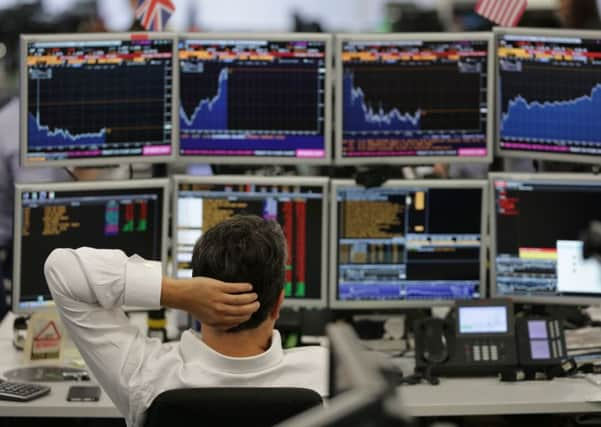Bill Jamieson: August is a wicked month for market wobbles
This article contains affiliate links. We may earn a small commission on items purchased through this article, but that does not affect our editorial judgement.


Historically in August, bad things happen – from the onset of market collapses to the outbreak of wars. And this August could also be shaking our complacency.
• READ MORE: Markets and economy news
Escalating rhetoric between the nuclear-armed paranoia that is North Korea and a deeply apprehensive United States has sent stock markets tumbling. On Friday the FTSE 100 Index closed 2.7 per cent down on the week at 7,309.96.
Advertisement
Hide AdAdvertisement
Hide AdThe fearful will fret that the index is now down 3.1 per cent from its recent all-time high. The sanguine take comfort that it is still 9.6 per cent above its 12-month low.
So which is it? No one knows for sure – not the commentators, analysts or star fund managers. There is not a mad panic sell-off. The Dow Jones Index fell a modest 1.1 per cent on the week and closed fractionally higher on Friday. But the unnerving war of words between America and North Korea and heightened geo-political tensions have rattled investors.
• READ MORE: Donald Trump: US ‘locked and loaded’ on North Korea
Gold – generally regarded as a safer asset in times of uncertainty – hit its highest price for more than two months on Friday, touching $1,288.97 an ounce at one point. The febrile mood has also added to the sense that a long and benign period for equities is due a correction.
Tom Becket, chief investment officer at Psigma Investment Management, sums up the mood of many: “Last year was a wonderful time for investors, as many assets were extremely cheap and most were at least ‘decent’ value. As markets have enjoyed a steady progression over the recent past, many of the opportunities have become less attractive and this has led to us progressively reducing risk and a range of profit-taking endeavours.
“Sentiment has become too complacent, in our opinion, and many investment valuations have become too expensive for us as contrarian investors… we would like the opportunity to put some of our cash allocations back to work, although we are not at that point yet.”
For long-term retail investors, a panic scramble off the beach does not yet seem justified. But building up cash reserves seems the sensible option for now.
Standard Life’s Gars exit poser
Advertisement
Hide AdAdvertisement
Hide AdJust the time, it would seem, to opt for a professionally managed multi-asset fund using all the tools that modern markets can offer to secure an overall total return.
Since its launch in the eye of the financial crisis, Standard Life’s Global Absolute Return Strategies (Gars) fund has been the first-stop shop for investment advisers and private investors alike. While returns were not guaranteed, it aims to generate a positive return above cash (before fees) over the medium term and irrespective of market conditions.
To achieve this, the fund pursues a number of strategies including complex hedging techniques through the use of derivative products, and “shorting” – making a bet that an asset will fall in value.
It proved immensely popular, pulling in £25 billion to be by far the most popular UK fund. But in recent years a combination of copycat rival funds and disappointment over performance has caused investors to head for the exit.
Standard Life results last week revealed that investors pulled out a net £5.6bn from Gars in the first six months of the year. This outflow came after investors withdrew a net £4.6bn in the second half of last year. Overall, this reflected poor performance during 2016 when the fund fell 2.7 per cent while markets generally rallied.
Standard Life acknowledged “a period of weak short-term investment performance in 2016” but highlighted an improvement since the turn of the year, with the fund up 4.4 per cent over the 12 months to the end of June. Chief executive Keith Skeoch said Gars flows were stabilising.
Advertisement
Hide AdAdvertisement
Hide AdBut investor disenchantment with Gars is being seen as part of a wider investor shift from active managed to low-cost passive funds, which have seen a surge in popularity. That in turn has added to searching questions over the benefits of the £11bn merger taking effect today of those active-managed giants Standard Life and Aberdeen Asset Management. Aberdeen has also been suffering from an investor exodus, with outflows of £13.4bn in the six months to March.
It’s a questionable marriage when the guests are leaving before the wedding festivities are over. But it’s fixing this exodus that the merger is intended to halt. More will be needed, I suspect, than headcount cuts.